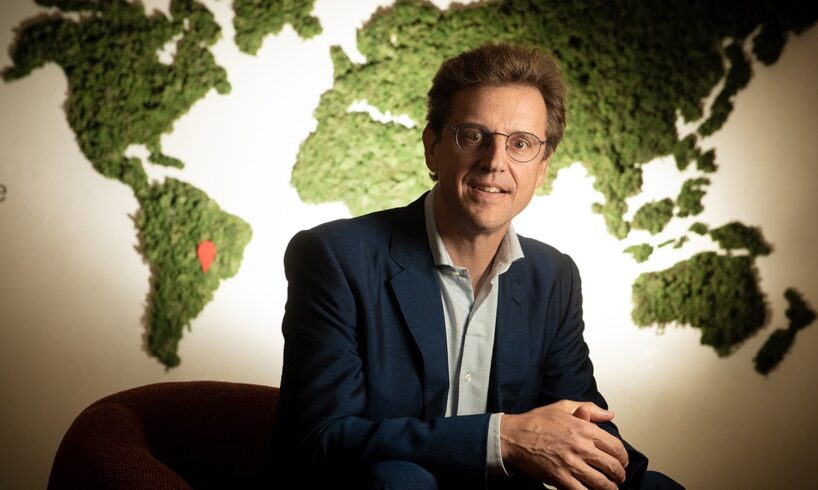
COP30 is expected to reshape how business is conducted worldwide, with “environmentally sound” principles set to guide trade agreements among nations and, most importantly, the private sector, which is expected to flock to Belém. This is the forecast of Jean Charles Branden, global head of sustainability at Bain & Company, who sees sustainability shifting from a peripheral concern to a central element of corporate competitiveness. However, geopolitical tensions and the slow progress in implementing environmental commitments continue to hinder advancements in the climate transition.
Decree to include sustainability criteria in public-sector procurementAnalysis: Diplomacy averts early clash at COP30, but deadlocks persist
“I witnessed the peak of sustainability during the ESG boom, when everyone was enthusiastically making commitments and talking about corporate purpose. That lasted until around 2022 or 2023. What I’ve observed over the past 18 months is that people have been talking much less about sustainability—not only for geopolitical reasons but also because many have realized that the big ideas and promises they made weren’t so easy to deliver,” he said.
Even so, Mr. Branden sees COP30 as a turning point for business engagement in the green agenda. “The conference comes at a symbolic moment: climate transition is no longer a niche topic but a pillar of the global economy. Companies need to be there, not just as sponsors but as active participants in defining what sustainable growth means,” he said.
He admits that companies are talking less about sustainability but have not abandoned it—even if they are at different stages, depending on the region. Some are meeting standards, while others are progressing toward adaptation. For Mr. Branden, Brazil has a unique chance to lead the new green-growth agenda, as it combines abundant natural resources, a diverse industrial base, and a business sector that is beginning to recognize the economic value of transition.
“The focus is shifting from rhetoric to execution. Alongside Brazil, we’re seeing the Global South lead this shift, with solutions that combine economic growth and environmental regeneration,” he said.
According to Mr. Branden, the region’s advantage also comes from trade tensions over the past six months—such as tariff hikes—which have reduced the United States’ influence in driving the sustainability agenda. He warned that Europe is also not well positioned, as it seeks energy efficiency but remains far from self-sufficient. This creates more opportunities for Brazil, China, and Southeast Asian countries.
Mr. Branden emphasized that the leadership of the Global South should not be viewed as an isolated responsibility—especially in clean energy generation—unless other nations are willing to share risks to support a just transition. He said that in this scenario, business agendas, including those at the COP, will focus on the speed of energy, food, and climate transitions as multiple solutions and more resilient management systems emerge.
Another recommendation is that companies improve their understanding of sustainability—such as knowing about “decarbonization levers” and which technologies can generate returns on the investments needed to create supply chains with net-zero carbon footprints.
“The private sector must consider how to minimize risks throughout its supply chains, adapting to a world that is not only hotter but also more susceptible to extreme climate events,” he said.
Mr. Branden compared nature to the biological idea of robustness—the ability of a system to keep functioning despite environmental shocks. In the pursuit of efficiency, humans have created systems like highways that are linear and optimized, but nature doesn’t operate that way. “A river isn’t optimized for speed but for adaptability. Unlike a traffic jam on a highway, a river can find a way around obstacles,” he noted.
He suggests that companies must learn to adapt to crises and resource scarcity in the same way. The firms that succeed in the new economy, he says, will be those that master “the ability to transform without losing direction.”
The Belgian executive emphasized that the private sector’s role in transitioning to a low-carbon economy—and the way artificial intelligence is speeding up that process—is directly linked to adaptation. “The most successful companies are placing sustainability at the center of their growth strategies. They do it not just for regulatory or reputational reasons but because they see it as a competitive advantage.”
Mr. Branden noticed a growing gap between companies that are shaping the future and those that are just reacting to it. “The former are ahead because they use sustainability to redesign business models, innovate in products, and open new markets. They create long-term value.”
This shift, Bain & Company noted, is global. Clients with sustainability-oriented management have shown more stable profit margins. “It’s a virtuous cycle: investing in sustainability drives efficiency, innovation, and reputation,” Mr. Branden said.
He added that this change in mindset is already influencing investment decisions and consumer expectations. “The companies that embrace this vision now will not only survive the transition—they’ll define what comes after it.”
For that reason, Mr. Branden believes, the private sector’s presence at the COP in Belém will be crucial for generating concrete commitments, building on the implementation narrative promoted by Brazilian authorities.





